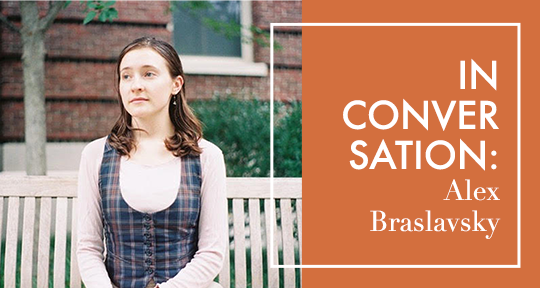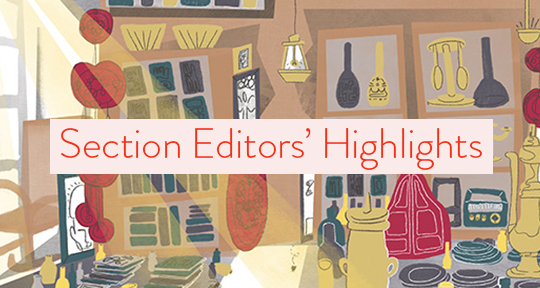Zuzanna Ginczanka is a name that poetry readers will soon become very familiar with—if she hasn’t enraptured you already. In thrilling, Dionysian verses of musical, mythic, and magical beauty, the young Polish poet astounded her contemporaries during her brief lifetime, and is now being introduced to a new generation of readers with the same powerful lyricism and sensual joy. We were delighted to feature some of Ginczanka’s poems in our Spring 2020 issue through the electric translations of Alex Braslavsky—who has since published a bilingual edition of Ginczanka’s selected poems, On Centaurs & Other Poems, with World Poetry Press.
In the following interview, Piotr Florczyk talks to Braslavsky about how translations can encourage active engagement with the source language; the sensoriums, pyrotechnics, and complex metaphoric mechanisms at work amidst Ginczanka’s words; and what makes this poet a necessary inclusion within the Polish—and the global—canon.
Piotr Florczyk (PF): If I’m not mistaken, On Centaurs & Other Poems is your first book-length translation. Could you talk a little bit about how you got started as a translator and, secondly, how you came to this project?
Alex Braslavsky (AB): As an undergraduate, I took a poetry workshop in which we read Tomas Tranströmer and Wisława Szymborska’s work in translation, and I remember being really struck by the intimacy I felt in Clare Cavanagh’s English versions of Szymborska—that was when I fell in love with Polish poetry. When I went on to pursue my master’s in the United Kingdom, I had the opportunity to start learning Polish. I also started attending Oxford Comparative Criticism and Translation seminars run by Kasia Szymańska.
I shared my interest in poetry with Kasia, and she informed me that a full volume of Zuzanna Ginczanka’s poetry had just been released in Poland in the fall of 2019. I had never heard of the author, but I am really indebted to Kasia, because I remember that on the first day she and I sat down to read Ginczanka’s poems, I recognized it as some of the most sophisticated poetry I’d ever laid eyes on, and I also realized that my sensibilities could mesh with Ginczanka’s; I had the urge to translate her work.
PF: Your book is the first of at least two volumes of Ginczanka translations to be released this year. How do you account for this sudden and growing interest in her work?
AB: There has been a lot of push in Poland for Ginczanka to get her due recognition. Over the past decade, she has entered the canon of Polish poetry. Although she was long overlooked by Polish poets and scholars, she is now included in the prominent textbook, the Nasiłowska History of Polish Literature. Several monographs have also been written about her work over the last decade, and in 2020, Izolda Kiec’s biography of Ginczanka, Nie upilnuje mnie nic (Nobody Will Police Me), was published—then adapted into a play. Artists like Krystyna Piotrowska have also exhibited artwork paying homage to her. There is a pressing urge on the part of many to make sure Ginczanka’s life and work is thrown into high relief on the international literary stage. Mine is one of, I believe, four different translations of Ginczanka’s work to be released this year, all by female translators, and it is a special moment because her work is so brilliant. She deserves this array of renderings to her name.
PF: Although born in modern-day Ukraine to a Russian-speaking Jewish family, Ginczanka chose to write in Polish. Can you speak to what might have influenced her decision to do so?
AB: Although Ginczanka was a Nansen passport holder (never being granted Polish citizenship because she was Jewish), she felt throughout her life that she was Polish and was closely connected to the Polish poetic tradition. Her parents left her with her grandmother in Poland when she was still an infant, and she was raised in Równe, Poland (now Rivne, Ukraine). She went to Polish school, attending the prestigious Tadeusz Kościuszko State Gymnasium from the age of ten, and though she spoke Russian at home, she elected Polish as the language of her pen. READ MORE…



